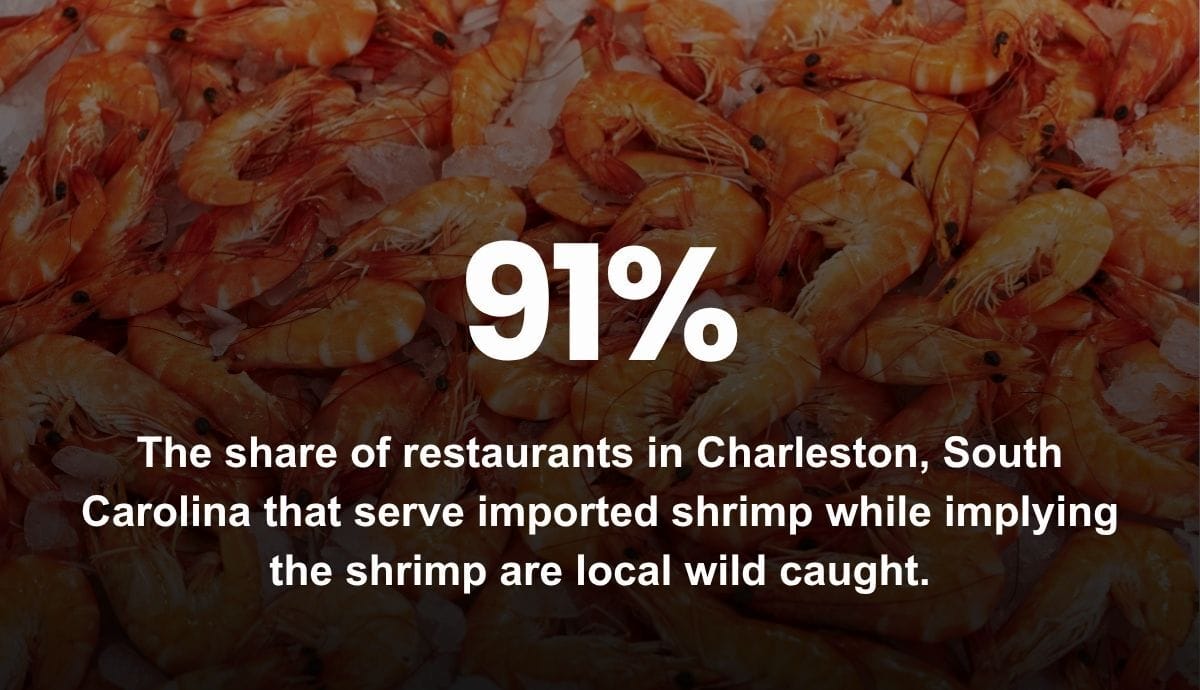- Sunrise Stat
- Posts
- 🌅 Shrimp Fraud in the South
🌅 Shrimp Fraud in the South
Uncover the power of a single statistic: Sign up for Sunrise Stat to find your intellectual clarity.
SOURCE
WHAT TO KNOW
Investigators commissioned by the Southern Shrimp Alliance (SSA) conducted genetic testing on shrimp dishes at 44 restaurants in Charleston, South Carolina, finding 40 of the locations were misleading customers by implying or “outright lying” that the shrimp they serve is local wild caught when it’s actually imported farm raised. Some of the restaurants serving fraudulent shrimp were even perched on water overlooking docks with local shrimping boats.
WHY IT MATTERS
The Charleston report is part of a broader study by the SSA investigating shrimp fraud across several Gulf Coast and South Atlantic states, uncovering high rates of fraud in cities in Alabama, Florida, Georgia, Louisiana, Mississippi, North Carolina, South Carolina, and Texas. The worst offenders were restaurants in Florida’s Tampa Bay area, where the alliance found 96% of locations were engaged in shrimp fraud.
CONNECT THE DOTS
In the 1980s, around half of the U.S. shrimp supply came from domestic sources; today, experts say that figure is down to about 10%. To push restaurants toward serving more domestic shrimp, the SSA study calls on states to create or enforce labeling laws that require restaurants to disclose the country of origin for the seafood they serve. The study also found labeling laws appear to work: restaurants in states without labeling laws had an 80% shrimp fraud rate compared to just 34% in states with labeling laws.
